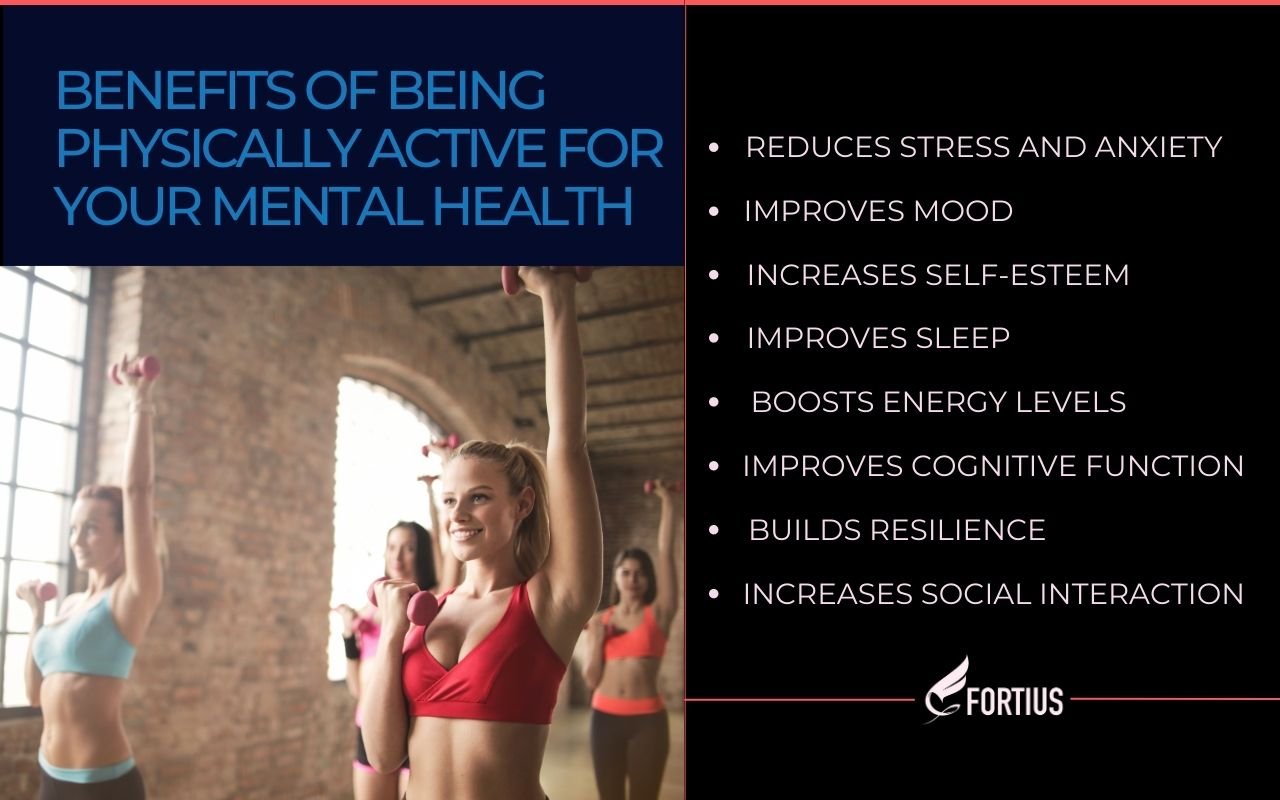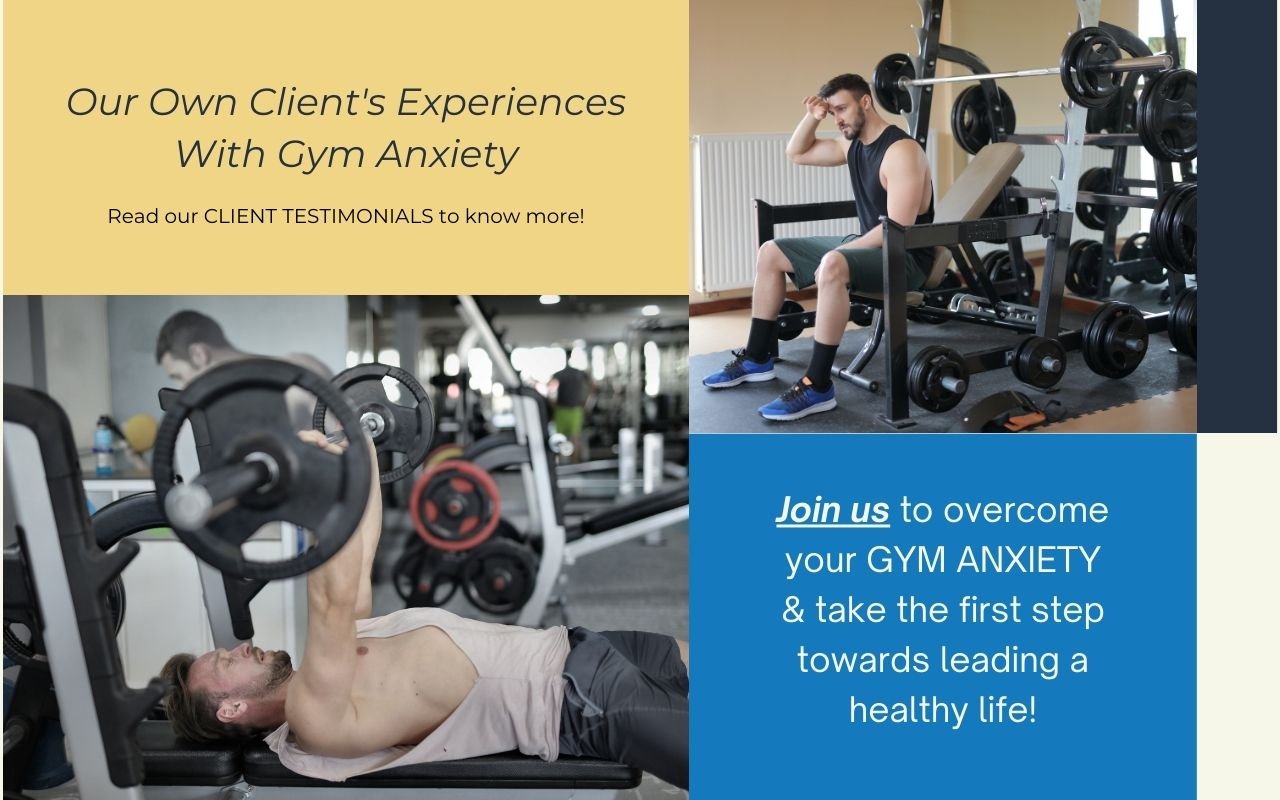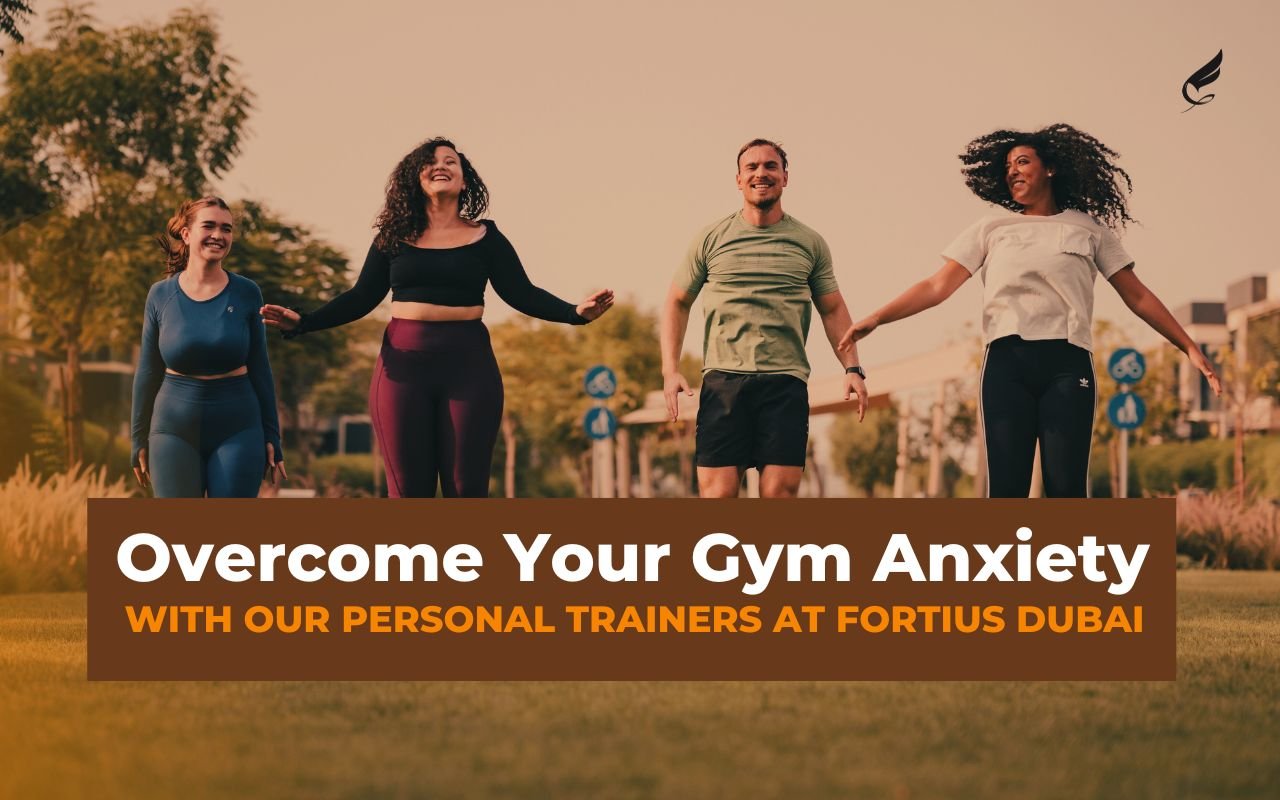Conquer Gym Anxiety: Practical Tips and Expert Guidance
Overcoming Gym Anxiety: You're Not Alone
Many people struggle with fear and anxiety when considering joining a gym. The thought of entering a crowded space filled with fit individuals in workout attire can be overwhelming and intimidating. It's easy to feel self-conscious and worry about being judged.
If you're experiencing gym anxiety, you're not alone. Studies show that 30-50% of people face similar feelings. According to research conducted by OnePoll on 2000 Americans, nearly one in two individuals reported social anxiety related to joining a gym.
In this blog post, we'll share practical tips to help you overcome gym anxiety and embrace the transformative power of exercise for improved mental health. Exercise has been proven to reduce stress, build resilience, sharpen focus, increase energy levels, and elevate mood.
Here are some tips to help you overcome gym fear and anxiety!
Tips to Overcome Gym Anxiety
Feeling anxious about joining a gym is more common than you might think. Many people feel overwhelmed or intimidated by the gym environment. But don't let these feelings hold you back from the benefits of exercise! Here are some practical tips to help you overcome gym anxiety:
Find the Right Gym: Before committing, visit a few gyms in your area. Look for a clean, well-maintained facility with equipment that suits your fitness goals. Consider whether they offer classes that align with your preferences, and observe if the staff is friendly and welcoming. A positive and supportive environment can make a big difference.
Strategic Timing: If crowded spaces trigger your anxiety, avoid peak gym hours. Consider going early in the morning, late at night, or during off-peak times. Some gyms offer women-only hours or have separate training areas for men and women.
Breathe Deeply: When anxiety creeps in, focus on your breathing. Slow, deep breaths can calm your mind and body, reducing stress hormones like cortisol. Practicing controlled breathing can help you manage anxiety effectively.
Tune In: Listen to your favorite music through headphones. This can help you create a sense of personal space and block out distractions, making you feel more comfortable and motivated.
Set Realistic Goals: Start with small, achievable goals, like going to the gym 3 times a week. Gradually increase the frequency and intensity of your workouts as you gain confidence. A fitness professional can help you set realistic short-term and long-term goals.
Find a Workout Buddy: Having an accountability partner can provide support and motivation. If you don't have a friend to join you, consider finding an online accountability partner or hiring a personal trainer for guidance and encouragement.
Remember: Most people at the gym are focused on their workouts, not on judging others. Even the fittest individuals can experience gym anxiety. Don't let self-consciousness hold you back from achieving your fitness goals. You're not alone in this, and the gym is a place for everyone to work on their health and fitness.
Now, let's explore the incredible benefits of exercise for mental health!
Benefits of Being Physically Active For Your Mental Health
It's well-established that physical activity offers numerous benefits for your overall health. But let's delve deeper into exercise's profound impact on your mental well-being.
Reduces Stress and Anxiety: Exercise releases endorphins, natural mood boosters that can alleviate stress and anxiety. It also provides a healthy distraction from negative thought patterns that may arise during periods of inactivity.
Improves Mood: Regular physical activity can significantly enhance your mood, fostering a more optimistic outlook. It can also help reduce symptoms of depression and anxiety. Achieving small fitness goals through exercise triggers the release of "feel-good" hormones like dopamine and serotonin, further promoting mental well-being.
Increases Self-Esteem: Exercise is not just about physical fitness, it's about empowerment. Each fitness milestone you achieve, whether it's running an extra mile or lifting a heavier weight, boosts your self-confidence and sense of accomplishment. This empowerment positively impacts your self-esteem, fostering a more positive self-image.
Improves Sleep: Exercise is a powerful tool in regulating your body's natural sleep-wake cycle, leading to better sleep quality. By incorporating physical activity into your routine, you can take control of your sleep patterns, ensuring you get the rest you need for mental clarity and emotional balance.
Boosts Energy Levels: Exercise can increase your energy levels throughout the day by improving cardiovascular health and boosting metabolism. This enhanced energy can positively affect your mood and motivation.
Improves Cognitive Function: Regular exercise is not just about physical fitness, it's about cognitive health. It has been shown to enhance memory, concentration, and decision-making skills, and importantly, it can help reduce the risk of developing dementia. By staying active, you're taking proactive steps to protect your cognitive health and overall well-being.
Builds Resilience: Pushing your physical limits through exercise can help you develop mental resilience and self-confidence. You become more aware of your inner strength and ability to overcome physical and mental challenges.
Increases Social Interaction: Exercise can provide opportunities to connect with others and build social connections, whether it's through group fitness classes, team sports, or simply working out with a friend. This can be particularly beneficial for combating feelings of isolation and loneliness.
Research supports these claims. A study published in Trends in Psychiatry and Physiotherapy confirms that regular physical activity can reduce symptoms of depression. Numerous other studies highlight the significant benefits of exercise for mental health.
Our Own Client's Experiences With Gym Anxiety
We understand that gym anxiety is a real and common struggle. To illustrate this, we've shared some anonymized experiences from our clients who have bravely faced and overcome their gym-related fears.
Y.E.'s Story: "For months, I wanted to start my fitness journey, but fear and lack of self-confidence held me back. My health was deteriorating, and I knew I needed to take action, but the thought of joining a gym filled me with anxiety. Working out in my nearly empty community gym with my personal trainer was a game-changer. It took a year before I felt comfortable joining a commercial gym. Now, I love the gym environment and the motivation it provides. Looking back, I realize how those initial fears held me back, but I'm grateful for the support that helped me overcome them."
L.G.'s Perspective: "During my free consultation at a large gym in Dubai, I felt overwhelmed and anxious. But after talking to friends who had trained there, I found the courage to join. It took a few months to build confidence and reduce my anxiety in that environment. Gym anxiety prevents many from taking the first step towards better health, but with the right support, it can be incredibly rewarding. I've learned that most people are focused on their own workouts, not on judging others."
C.E.'s Experience: "Despite being comfortable with public speaking, I experienced anxiety in crowded gyms. My trainer and I even laughed about how anxiety can manifest in different situations for different people. Having a good rapport with my coach and feeling safe in his presence helped me push through my discomfort and enjoy my workouts. While I still experience some gym-related anxiety, I haven't given up on my fitness goals because of the positive impact exercise has had on my life."
L.D.'s Journey: "My gym anxiety worsened after a negative experience in a group fitness class. It took time to find the courage to try again, but thanks to the support of personal trainers, the gym has become a positive space for me. I've lost a significant amount of weight and rarely feel anxious unless I'm alone in a new gym. I recommend starting with a private gym or home workouts until you feel more confident, then gradually venturing into busier gyms with a supportive companion."
These stories highlight that gym anxiety is a common experience, even among fit individuals. With the right support and strategies, you can overcome these challenges and experience the transformative power of exercise.
Overcome Your Gym Anxiety with the Right Support
If crowded gyms trigger your anxiety, you don't have to force yourself into those environments. At Fortius Dubai, we believe in providing the best support for our clients, helping them reach their fitness goals wherever they feel most comfortable. Whether you prefer the comfort of your home or the energy of a fully equipped gym, we have you covered!
We offer online and in-person personal training options to help you achieve your fitness goals. Our team of qualified professionals is highly knowledgeable and experienced, so you're in safe hands.
We prioritize creating a safe and comfortable atmosphere for our clients by actively listening to their needs. Our sessions are tailored to help you achieve your fitness goals while having fun!
Don't let gym anxiety or fear of joining a gym hold you back from living your best life. Seek professional support and become the best version of yourself!








